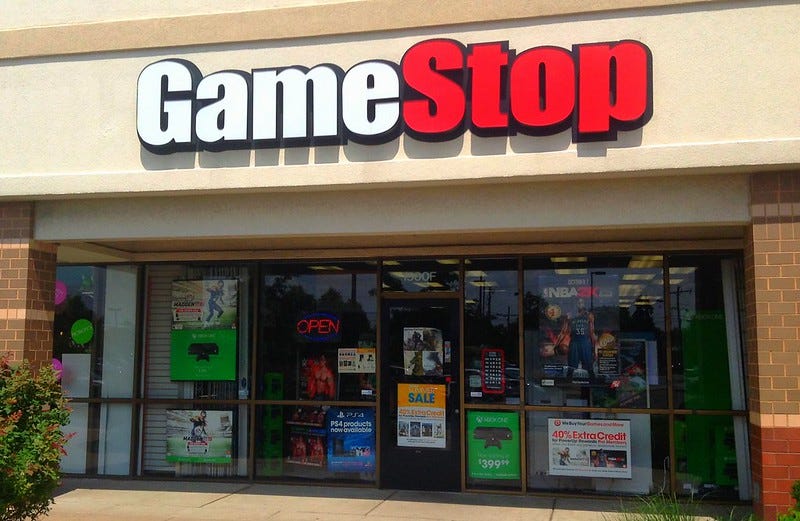Zeus: ESG and the GameStop effect
Welcome to Callaway Climate Insights. As we prepare to go subscription next week, please share this with your friends and colleagues.

(David Callaway is founder and Editor-in-Chief of Callaway Climate Insights. He is the former president of the World Editors Forum, Editor-in-Chief of USA Today and MarketWatch, and CEO of TheStreet Inc.)
Note to readers: Callaway Climate Insights will move to a subscription model on Feb. 8. Subscribers will have access to our most valuable content and data, special invitations to webinars and online conferences, and receive first insights on breaking news as it develops, ahead of free readers. Subscribe today and get a special deal: We’ve discounted the annual rate by 20% to $200. Or, subscribe at our special founders rate, which will never increase. You also can pay monthly.
SAN FRANCISCO (Callaway Climate Insights) — Millennials. Digital money. Social trading campaigns. Fighting injustice. Is ESG the ultimate meme trade?
The dizzying rally in environmental, social, and governance stocks, funds and indexes in the past 12 months, spurred by electric vehicle hype and a dramatic surge in special purpose acquisition companies (SPACs) to acquire them, has all the hallmarks of a bubble. Soaring valuations without underlying business fundamentals, like manufacturing products or actual sales; talk of paradigm shifts in society; new young heroes of business changing the way the world works.
I’ve often thought ESG could be the new Internet bubble. The beginning of something that will indeed change finance and society and how assets are managed, albeit with the prerequisite growing pains associated with market exuberance. But the GameStop trading craze last week, in which tens of thousands of investors were led to the slaughter by a social campaign directed at “evil” hedge funds and short-sellers, makes me wonder if there isn’t more here.
Easy, low- or no-cost trading makes markets more susceptible to sharp peaks and valleys, and we’ve witnessed this particularly in the cryptocurrency markets in the past few years. I’m in the camp that believes markets will always correct to rational levels once all the information is out there, such as we’ve seen with shares of GameStop (GME) in the past few days. Strip away the accusations and conspiracy theories and Jewish space lasers, and you’re left with a business that is simply not trading at its real valuation. So it corrects.
But sometimes entire industries get improperly valued. Climate historians will argue that for decades, fossil fuel stocks were improperly valued because we did not calculate the future cost — to the environment — of drilling into the earth. Revenue without costs equals pure profit. Now that we are counting them, look what’s happened to oil stocks. Most of the divestments we’ve seen in recent weeks by large investors — such as the Norway wealth fund — have come only after they’ve gotten killed on plunging prices in the past year. If oil stocks were soaring, would we be seeing these?
Another sign is the sudden desire of Wall Street to create new business from ESG. Water trading. Carbon trading. SPACs, again. Just this morning, three press releases crossed my desk about new ESG indexes. The biggest one, from S&P Global, announced two new indexes for mid-cap and small-cap companies.
The company said it added to its suite of ESG indexes in part because of the huge surge in ESG exchange traded funds (ETFs) last year. It said assets under management at ESG ETFs in the U.S. in 2020 almost tripled to $170 billion from $60 billion, with about $81 billion of that growth coming from new investor inflows. It said assets of small-cap ESG products rose more than 260%.
S&P back tested the performance of its new S&P MidCap 400 ESG index and found it rose close to 15% in 2020, after a 27% gain in 2019. The top-weighted components in the index were information tech and healthcare companies, though industrial company Generac Holdings (GNRC) was the top-weighted company.
The S&P SmallCap 600 ESG index by comparison was made up by half of consumer discretionary companies such as Bed Bath & Beyond (BBBY), Crocs (CROX), and coincidentally, GameStop in the top-weighted spot, according to the press release. Its 2020 performance, which would not have included the GameStop mania of the past two weeks, was almost 13%, after 22% in 2019.
I’m not sure what GameStop did to earn an ESG rating but it must have been something. Its inclusion reminds of a common criticism of a lot of these ESG funds that they are packed with high-performing tech and gaming stocks, which may be contributing to price growth of the funds than, say, decarbonization.
The Securities and Exchange Commission said Wednesday it will review social media and message boards for signs of fraud in last week’s meme frenzy. Meanwhile, the rally train has moved on, first to silver, and we’ll see what’s next. As millennials begin accumulating wealth, and inheriting assets from their retiring boomer parents, we can expect more trading activity in the ESG universe they are fond of.
Having more people in the market generally makes markets more efficient, not less. But investors, especially those who don’t remember the pain of the great financial crisis now more than a dozen years ago, would do well to remember that no stock rally goes forever. Even one tied to an economic revolution that is just beginning, such as climate transition. We can expect lots of bumps along the way, not the least of which will come from actual global warming disasters themselves.
As the world wakes up to the promise of investing in climate solutions and the opportunities ESG themes provide, it’s more important than ever that the capital sloshing toward these companies be directed to its intended purposes, and not just to the latest, lockdown-era Internet fad. The real smart money knows the difference.

